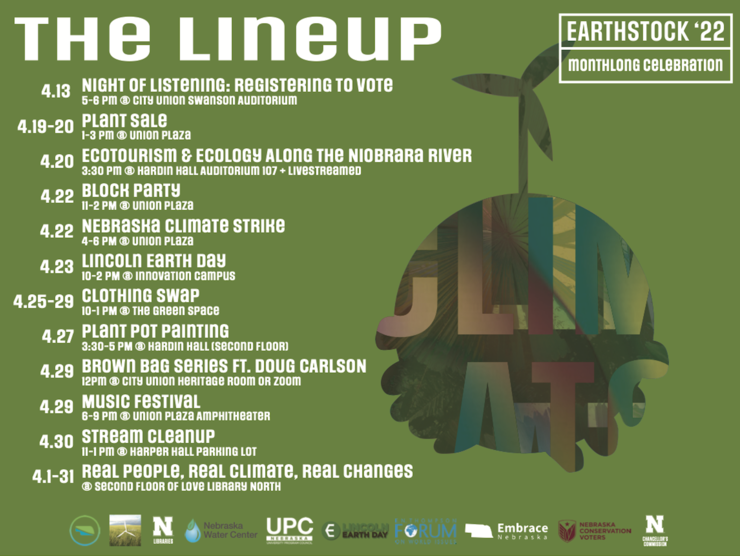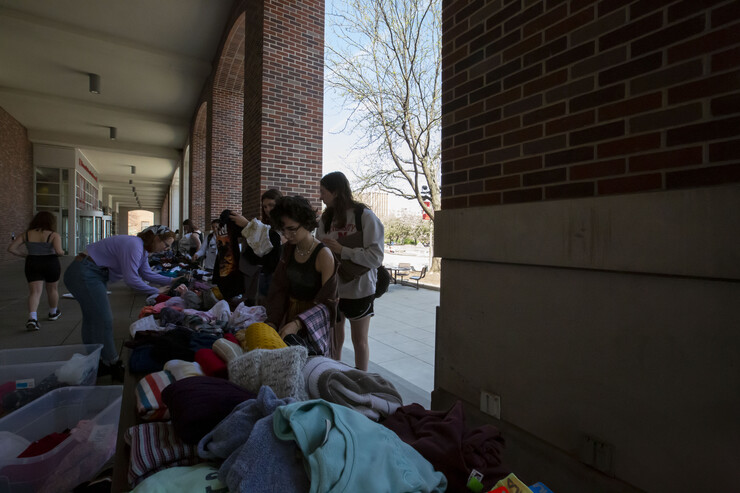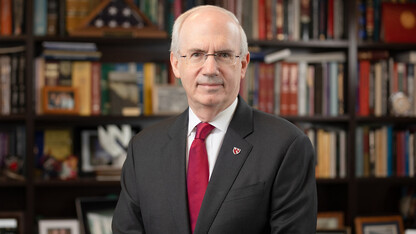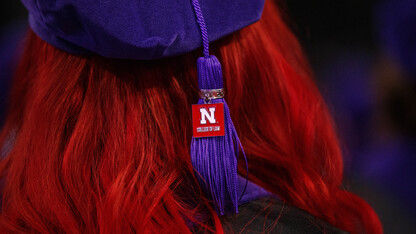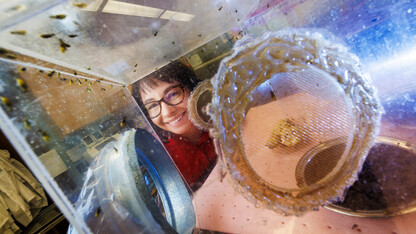· 4 min read
Earthstock success powered by student duo
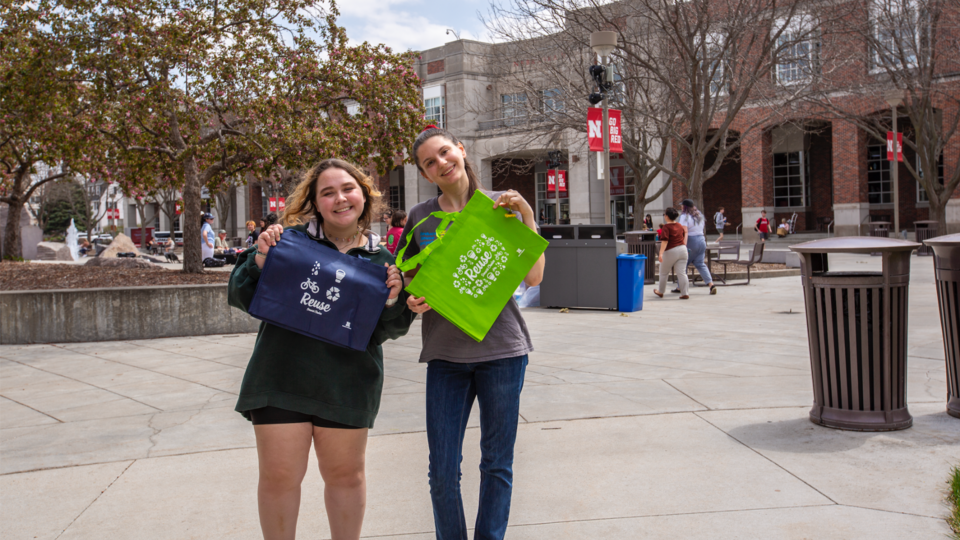
Two University of Nebraska–Lincoln environmental studies majors harnessed their passion and education to plan (in a matter of months) EarthStock, a celebration of the planet in April.
EarthStock is a series of events hosted by sustainability-related campus entities to educate and unite Huskers around the common goal of a more sustainable future. EarthStock is a completely student-run event, housed under the Association of Students of the University of Nebraska. After noticing a vacancy for the EarthStock chair position, sophomore Rachel Summers and senior Kat Woerner applied and were appointed co-chairs.
In only half of the typically allotted time frame, Summers and Woerner successfully planned a slate of events with support from and in collaboration with the Nebraska Water Center, Sustain UNL, Lincoln Earth Day and more.
“We wanted to make sure EarthStock continued,” Summers said. “I think it’s really important because it raises awareness that there are environmental and sustainability initiatives on campus.”
Summers and Woerner collaborated with organizations to host engaging events including a music festival, stream cleanup, plant sale, block party and a clothing swap. The duo was pleased with the turnout, especially for the plant sale, block party and the clothing swap, which have proved to be some of the most popular events year in and year out.
“Students always talk about the clothing swap being their favorite thing because they have so many clothes they don’t want anymore,” Woerner said. “It’s cool that they can exchange them and get things that are new to them. It was sponsored by Sustain UNL, who also hosted a two-day plant sale. I’d say that was really successful because they sold out of plants.”
The clothing swap was also a tangible way for students to prevent more items from reaching landfills. This is due in part to changing fashion trends and limited time to access recycling and donation centers, according to Ritu Jadwani, a doctoral student in Textiles, Merchandising and Fashion Design whose research focuses on sustainable fashion and textiles
“Only 12% of clothes are recycled every year, globally, and on average Americans throw away 37kg of clothes every year,” Jadwani said. “Clothing swaps are a way to help people be more sustainable by bringing the swaps closer to them. They do not need to drive anywhere to drop off their clothes or shop for new clothes. They can drop their clothes off before the swap and shop a new look during the swap which is not only affordable but also gives them a fresh new wardrobe and most importantly helps save the environment. Clothing swaps are a great way to become more sustainable and reduce textile waste.”
At the block party, organizations gathered outside the Nebraska Union and set up tables that included activities, items and educational materials to show students how they could incorporate sustainability into their daily lives. The block party is another way to increase sustainability visibility on campus.
“A lot of campus sustainability initiatives have been kind of behind the scenes or students have to be in certain classes or specific communities to know what’s going on,” Summers said. “So it’s great when it’s kind of in your face on social media, and in front of the Union where everyone is all the time. It really puts it out so people on campus get the chance to be more educated on it as well as just being aware like hey, people at your school do care about sustainability and climate change.”
EarthStock not only fulfilled the student co-chairs’ desires to promote sustainability on campus, but also taught them lessons for the future. Through collaborating with campus organizations, as well as managing money, contracts and approvals, Summers now has another experience to add to her resume as she pursues her dream to work in environmental policy. As a sophomore, she’s ready to continue organizing EarthStock for years to come.
“I really learned a lot through this experience and from Kat Woerner, and hopefully I’ll be able to organize EarthStock on my own next year,” she said.
